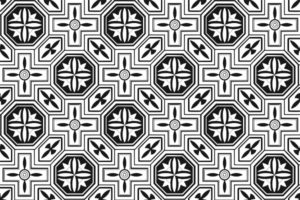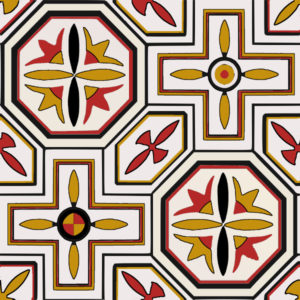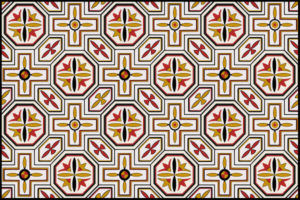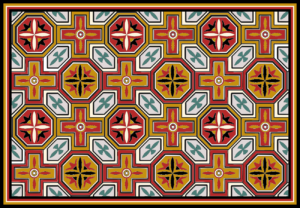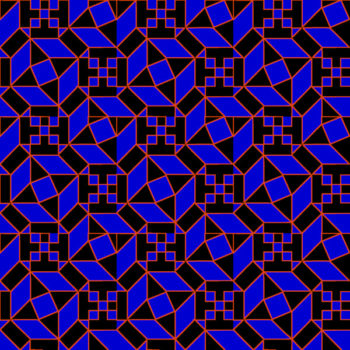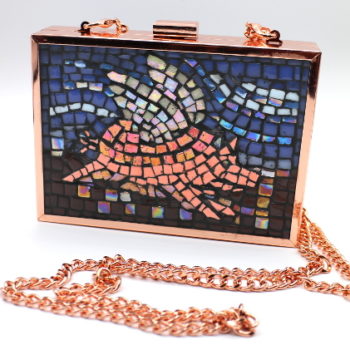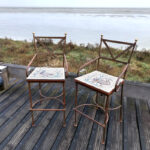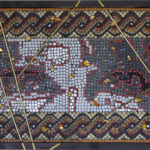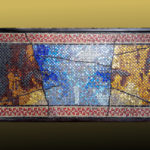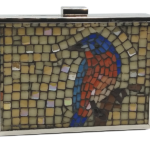South of the Loire River, the Empire lasted…
While Britain and Northern Gaule had been lost for the Empire since the late 3rd century, Roman culture and values were still very much alive south of the Loire River.
In Aquitania, Roman Villas were still occupied and gorgeous mosaics still being laid for the enjoyment of masters and their clientele. Those early medieval mosaics put greater emphasis on geometric patterns than had been fashionable 2 centuries before when pagan mythological scenes were still enjoyed. Now that Christianity had become the official religion of the civilized world, More abstract designs were being appreciated.
The Villa of Lalonquette, located on the edge of the Gabas river was occupied from the 1st to the 5th century.
In a previous post I provide the patterns of a Rosette of one of the mosaics of this Villa.
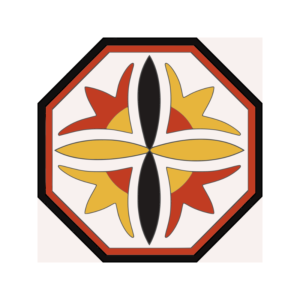
A combinations of Octagons and Crosses
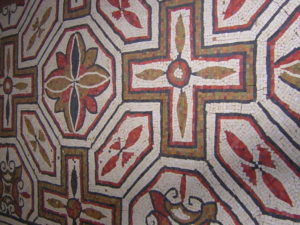
In 380 CE, the emperor Theodosius had issued the Edict of Thessalonica, making Christianity the official religion of the Roman Empire. The 4th century mosaicist who laid Lalonquette connected the octagonal medallions with crosses.
The basic pattern of this mosaic is :
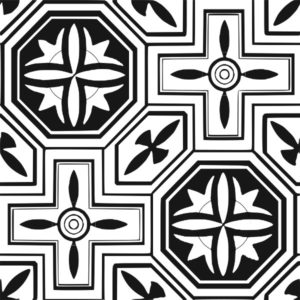
I addressed in my post Roman Tile – 01 how to use such basic pattern to create huge backgrounds.
These colors are quite close to the original 4th century ones
and this is a combination of 6 elements.
Feel free to use these designs to create your own mosaics or other graphic art. Change colors, combinations, sizes… I research and reproduce the geometric patterns of Roman mosaics. I use them to create my own mosaics, scarves, or other wearable art. And I share them on this blog. They are free to use and enjoy.

